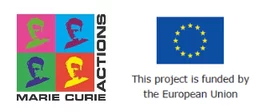RAPTOR is a Marie Skłodowska-Curie Innovative Training Network (ITN) funded by the Horizon 2020 Framework Programme of the European Union. The RAPTOR training network brings together 13 beneficiaries (The Center for Proton Therapy at the Paul Scherrer Institute PSI as the coordinating institute, Aarhus University, GSI Helmholtzzentrum für Schwerionenforschung, Ludwig-Maximillian-University Munich, Technic University of Dresden, Universitair Medisch Centrum Groningen UMCG, University of Amsterdam, University of Ljubljana, Polytechnic of Milano POLIMI, University of Wien, Cosylab, Raysearch Lab and MedPhoton) as well as 15 partner organizations with one aim in common: To bring adaptive particle therapy to the clinic.
For more information, please check the RAPTOR web-page (https://raptor-consortium.com ) or send an email to francesca.albertini@psi.ch
Short summary of the project
Proton therapy (PT) is an advanced type of radiotherapy used to treat a constantly rising number of cancer patients. PT allows to target a tumor with a high accuracy while sparing healthy surrounding tissue from dose. However, changes in the anatomy of the patient or his/her positioning or organ motion give rise to uncertainties which need to be further minimized to exploit the full benefits of PT. Adapting PT plans in real time has the potential to provide truly personalized treatments, allowing for better target control and less toxicity The main objective of RAPTOR is to advance the proton therapy (PT) for real-time use.
The RAPTOR consortium is coordinated by Dr. Francesca Albertini and comprises world-class research institutes, non-academic particle therapy (PT) centres and industrial providers of PT equipment.
RAPTOR objective is to train a new generation of researchers, enabling a paradigm shift from treatment approaches that are manual and stepwise to those that are automatic and seamless, while assuring standardized clinical implementation of real-time adaptive PT.
In particular, 15 PhD students will take part in RAPTOR, working on the same number of projects to address and solve challenges in the clinical implementation of real-time adaptive PT.
Visit the RAPTOR web-page, there you will find RAPTOR news, information on schools and open positions.
